Sustainability
Environmentally friendly food production
Our organic growers are passionate about their products and taking care of the environment in which they are grown. The organic method of cultivation without the use of chemical fertilisers and pesticides is the best way to take care of the soil they live by.
Read more about our sustainability initiatives below.
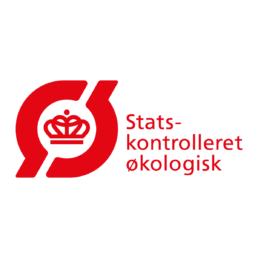




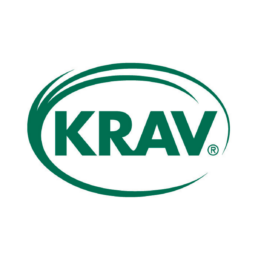
CoC Number: 4049929000346
Fruits and vegetables are a sustainable choice
What we eat and drink has a major impact on the climate. Within the various food categories, fruits and vegetables rank amongst the most sustainable ones for several reasons. One reason is the calculated climate footprint in kg. which in general is lower for fruits and vegetables compared to other food categories. Furthermore, fruits and vegetables are an essential part of a healthy and nutritious diet which also is an important factor to consider when talking about sustainable food.
See the calculated climate footprint in kg. for 500 different food products.
The United Nations Food and Agricultural Organization (FAO) define sustainable diets as those “with low environmental impacts which contribute to food and nutrition security and to healthy life for the present and future generations. Sustainable diets are protective and respectful of biodiversity and ecosystems, culturally acceptable, accessible, economically fair and affordable; nutritionally adequate, safe and healthy; while optimizing natural and human resources.”
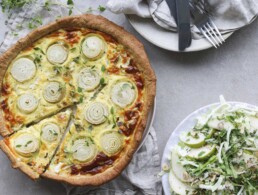
Circular and sustainable food production
Our organic growers have invested in several initiatives and production processes to ensure a more sustainable and efficient production of fruit and vegetables. This is some of the examples:
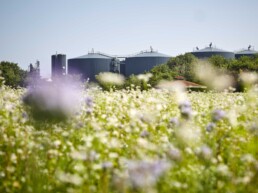
Sustainability as a strategy
Sustainability is an unwavering guideline for Axel Månsson in the vegetable production. On the farm they have established their own biogas plant which converts biomass from the production into green biogas. The biogas is used on the natural gas grid and provides heating for about 12,000 households. The degassed biomass is subsequently used on the vegetable fields as a valuable organic fertilizer. By doing so, the natural nutrients return to the nature and complete the organic production cycle.
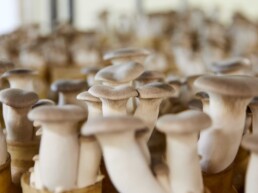
Circular production model
With the ambition to eliminate any waste of the resources used in the mushroom production, Tvedemose have developed a unique and acknowledge circular production model. Tvedemose produce their own mushroom compost from organic biomass where the nature’s own processes are imitated. The mushrooms are given the necessary time to develop a firm texture and flavour full of umami. Instead of disposing the mushroom compost when the mushrooms are harvested, Tvedemose supply the compost to producers of cucumbers and tomatoes, where the compost is used as a valuable organic fertilizer. In this way the resources are fully utilized.
Packaging
Do we really need packaging on fruits and vegetables? It is a fair question to ask, especially considering the climate impact from plastic waste. It would be easy to say that all plastic packaging from fruit and vegetables should be removed, however there are several valid reasons why that is not the case for all products.
- The right packaging extends the shelf life for some fruits and vegetables and reduces food waste. Up to 90 % of the total climate impact from fruits and vegetables is in the production processes. The remaining 10 % is a split between packaging and transportation. Accordingly, there are great environmentally benefits to gain when the food waste is reduced.
- The right packaging will protect the product during transportation and handling while maintaining a high level of hygiene and food safety.
- When both organic and conventional fruits and vegetables are sold in the same place, packaging and labelling ensure that the products are not confused.
That being said, we do always consider the necessity of packaging. If there is no risk of compromising the quality and food safety, we do not use packaging. And in the cases where packaging is necessary, we look for the most sustainable solution. We also contribute to various research projects to find alternatives to traditional plastic – for example biodegradable plastic or packaging based on plant fibres.
An example on how we work with more sustainable packaging solutions. The amount of plastic used in this bag is reduced by 45 %, and the plastic that is used is recyclable.
Reduction of food waste
It is estimated by the United Nations Food and Agricultural Organization (FAO) that 1/3 of all food produced globally is wasted. See the report here. Food waste is both critical in terms of feeding a growing population worldwide, but also in relation to the negative climate impact it brings. Most of the climate footprint from food is in the production process, which is why a reduction of food waste to a minimum is very important.
Food waste occur throughout the entire supply chain from producer to consumer. Our organic growers are very aware of their responsibility in this matter, and together with business partners and customers, we have invested in several initiatives to counter food waste.
Organic mini carrots
Previously, our producer of root vegetables, DanRoots, discarded up to 1,000 tons of organic carrots due to odd sizes. They could be too small, broken or have irregular shapes and couldn’t be sold for these reasons. However, the quality and taste were still perfect. To counter this food waste, DanRoots made the initiative, together with the organization Stop Wasting Food movement Denmark, to sell the carrots in other ways. The result was a re-branding of the product and today the carrots are sold as organic mini carrots.
‘Ugly’ vegetables
Unfortunately, a lot of vegetables are thrown away because they are cosmetically imperfect. This in spite of the taste and quality that is still perfect. For example, only about 60 % of a field of cauliflower will be sellable according to current cosmetic and size requirements. We believe that this is wrong, and together with business partners we are collaborating to sell the ‘ugly’ vegetables in other ways. The ‘ugly’ vegetables deserve to be eaten as well.
Meet our growers
Danish Organic Growers is owned by fruit and vegetables growers across all of Denmark. Every day they work dedicated to deliver fruit and vegetables of premium quality.